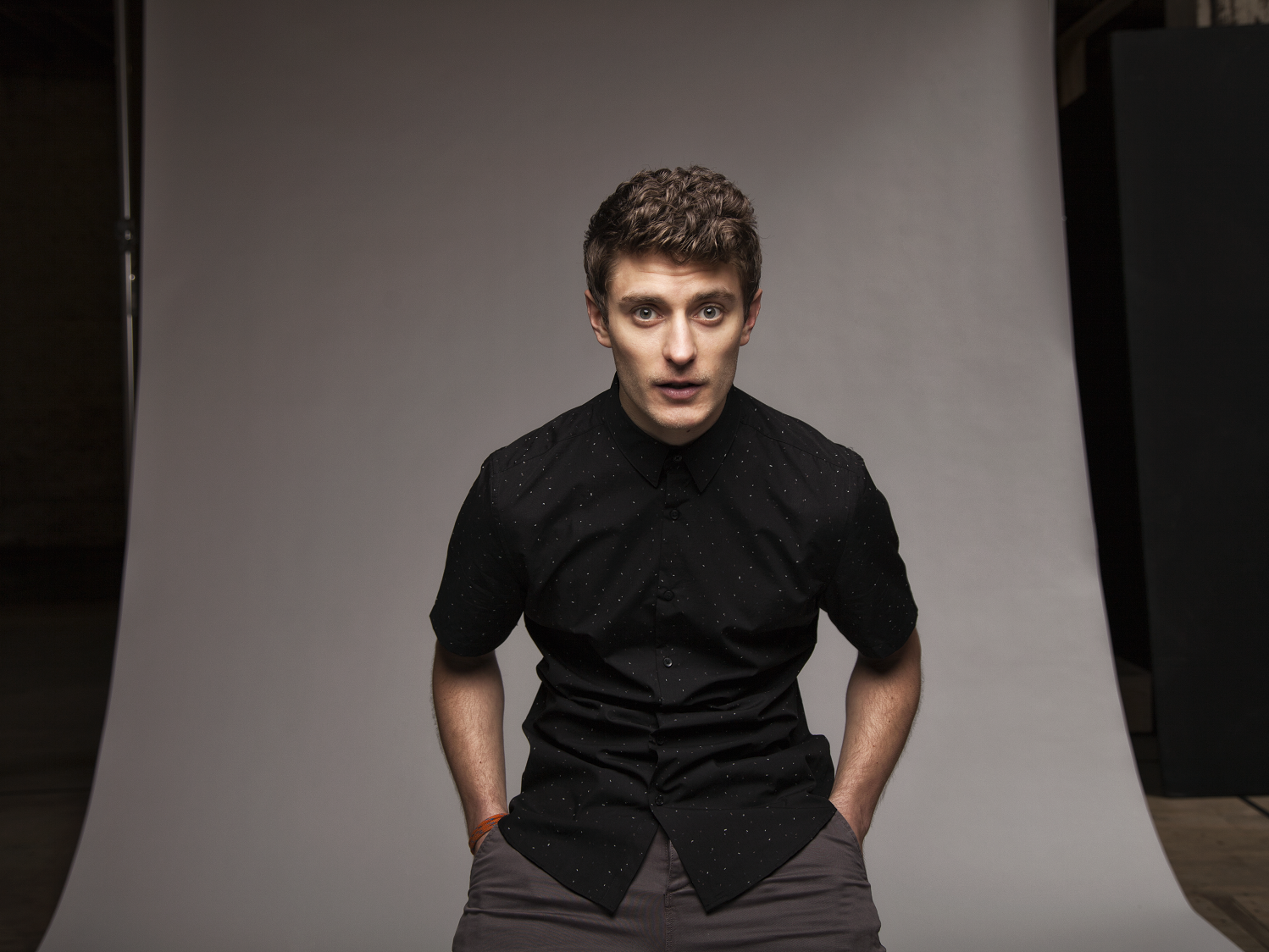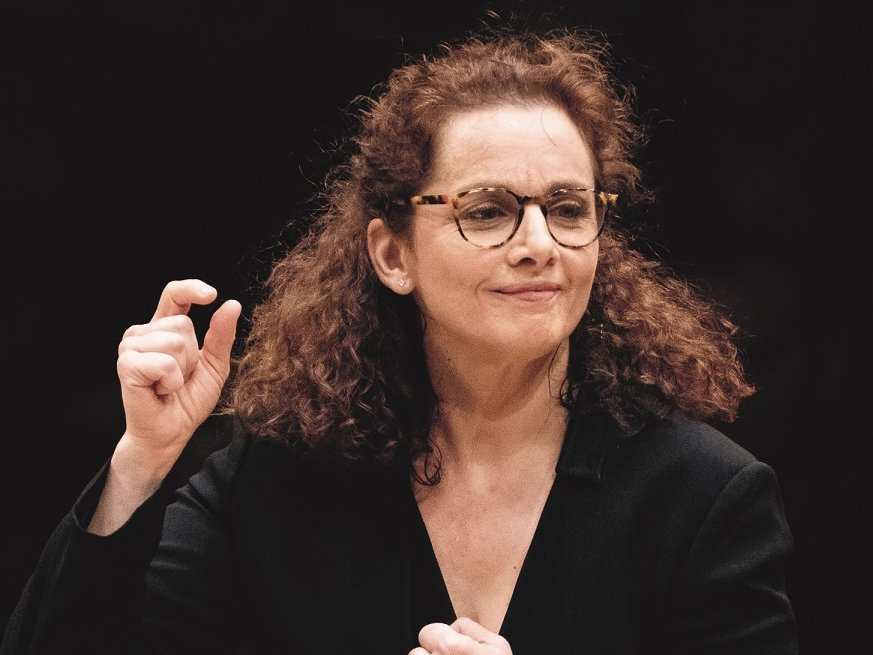- Portrait

Klaus Mäkelä is only twenty-seven years old but he is already one of the most sought-after conductors of our day. He has been music director of the Orchestre de Paris since 2021 and will be taking over the direction of the Concertgebouw Orchestra at the start of the 2027/28 season. The Finnish conductor made his debut with the Berliner Philharmoniker in April 2023. A portrait.
Micaëla has just fled into the wings following the disagreeable conversation that she had been having with the importunately flirtatious Moralès, while the other soldiers lounge around, bored of their guard duties, and express their contempt for the “strange folk” milling around in the town square. Then – finally! – two trumpets and a flute announce the changing of the guard, a moment the local street urchins have been waiting for. Entering with Don José and his company of uniformed officers, they imitate the soldiers’ regimented movements. “Avec la garde montante, nous arrivons, nous voilà!” bawl the children in impeccably well-drilled French – this performance of Carmen is taking place in Helsinki.
Among the group of boys is the seven-year-old Klaus Mäkelä. He feels as if a spell has been cast on him as he stands there in costume, wearing stage makeup and lit by countless spotlights. A swirl of sounds, movement and light surrounds him and he senses the magic of opera as a synthesis of the arts. As he marches across the stage with the other boys as if in a trance, she asks himself who is in charge of this world of wonders. Soon he makes out the conductor, directly in front of him, in the orchestra pit. “I was completely overwhelmed by the power of the music,” the now twenty-seven-year-old maestro recalls in the course of an interview in the Amsterdam Concertgebouw. “I wanted to be able to do this too! For five long years I dreamt of becoming a conductor – until I was finally allowed to take the entrance examination for Jorma Panula’s conducting class.”
Real-life training at a young age
At an age when other children can hardly wait for the school day to end so they can go and kick a football around or get back to their PlayStation at home, Klaus Mäkelä was beginning to prepare himself systematically for one of the most challenging of all professions in the arts, a job that requires not only the greatest musical expertise but also the qualities of a top-flight manager and the sensibilities of a psychoanalyst.
“People could say that when you’re only twelve your musical brain is still underdeveloped,” Mäkelä concedes. “But if you start while you’re still young, conducting becomes something that’s entirely natural and self-evident.” Above all if you have Jorma Panula as your teacher. Born in Kauhajoki in Finland in 1930, Panula is a legend among orchestral trainers, having left his mark on whole generations of conductors. Indeed, the older he gets, the more interested he has become in very young and highly talented musicians.
“Each week we would stand in front of a small orchestra,” reports Mäkelä. Normally, up-and-coming conductors spend years in a kind of halfway house, conducting two pianists playing symphonic works in arrangements for piano four hands. But thanks to his reputation Jorma Panula has been able to offer real-life training conditions to his students at the Sibelius Academy in Helsinki.
A meteoric career
Thanks to their continuous work with an orchestra, Mäkelä and his fellow students quickly learnt that “you must always be the same person with the same personality, no matter whether you’re standing onstage or not. If you try to be anyone else when you’re holding a baton and if you assume a different persona, it won’t work. A sense of authority can’t be created by external, artificial means. In that case you’ll never be entirely convincing.”
Mäkelä has enjoyed a meteoric career and is grateful that he gradually grew into his profession from a very early age. “I was simply able to do it without thinking about it too much. If I were to start conducting today, I’d ask myself a thousand questions. How am I supposed to communicate? What is the orchestra thinking when I do this or when I do that?”
Klaus Mäkelä was fortunate to have his talent recognized and encouraged at an early date. Both of his parents are professional musicians, his father a violoncellist, his mother a pianist. “Whenever I needed help, I could always turn to them. In that way I was able to develop without any pressure.” And he developed on several different levels at once, not only as a member of the children’s chorus at the opera house, where he discovered his dream job, but also as an instrumentalist. He chose the violoncello, which he learnt so quickly that by the age of fifteen he was already sufficiently qualified to deputize in the Helsinki Philharmonic.
“This was my second course of training as a conductor,” says Mäkelä. “I learnt a lot from the perspective of an orchestral musician.” Here his encounters with bad conductors were just as instructive as those with good ones: “The good ones ensure that everyone is stimulated in a positive sense whenever they are making music. But the following week someone else will turn up and the same people are unmotivated but keep looking at their watches throughout the rehearsal.”
Klaus Mäkelä had only just reached the age of legal consent when the Helsinki Philharmonic gave him his first big chance and invited him to appear as a conductor in public. After that things moved very quickly. By May 2018 he had made his debut with the Oslo Philharmonic and by the following October the players had asked him to be their next music director. His contract was initially due to last four years but even before he had taken up the post in 2020, it had already been extended to seven.
In the meantime the Orchestre de Paris had approached Mäkelä, wanting to engage him from 2022, before bringing forward the date of his appointment to 2021. Decca was the next organization to pipe Klaus Mäkelä on board. Not since 1978 had a conductor been offered an exclusive contract by the label. Their first release was a boxed set of all of Sibelius’s symphonies with the Oslo Philharmonic.
Three leading positions
Last August the fantastic Finn added a third leading position to his portfolio with his official debut as principal conductor of the Amsterdam Concertgebouw Orchestra. The negotiations had dragged on for almost a year before a way was found to ensure that the arrangement suited both parties. Since Klaus Mäkelä is determined to fulfil all his commitments conscientiously, he will initially conduct only a few concerts each season with the Concertgebouw before taking on a fulltime workload from 2027.
While the world of music is still rubbing its eyes in disbelief at such a prodigiously talented youth, he himself seems unsurprised that he has already reached the top of his profession, wisely pointing out that one of his predecessors at the Concertgebouw – Willem Mengelberg – was only twenty-four when he took up his official duties. This may be true, but at the date in question, 1895, the orchestra was a nonentity on the international stage and had just lost Willem Kes, the conductor who had helped to found it, when Kes headed off to Scotland in pursuit of a higher salary. Mengelberg held the post for an astonishing fifty years, turning the Concertgebouw into an orchestra of the very first order – global players in the truest sense of the term.
Nowadays orchestras and conductors part company far too quickly, Mäkelä believes. “Anyone who really wants to make a change needs to stay for a longer period of time. The Berliner Philharmoniker are a good example of this. Karajan could not have created this very specific sound in only ten years. In Mäkelä’s eyes a lengthy tenure represents a win-win situation for all concerned. “You get to know the people better, you need to do less talking in the rehearsal room and you understand each other more quickly. This saves a lot of time and gives us the opportunity really to make music.” That is why he has decided to work intensively with only three orchestras instead of jetting round the world and appearing week after week in front of a different group of musicians.
But how long is too long in a musical partnership? “After twenty years you need to reassess your relationship with the orchestra,” says Mäkelä. “This allows you to ask yourself the question as to how much you can still give to the orchestra.” After all, conductors not only uphold tradition, they also help to develop those traditions. “We are responsible for our orchestras, we need to ensure that they are happy and that they evolve. If I’ve nothing more to offer them, then it’s time for me to move on.” In much the same way parents must let their children go once they have grown up.
In Germany Klaus Mäkelä has worked mainly with radio orchestras in the past. “One of my first engagements was in Frankfurt. We understood each other at once, a fantastic orchestra, very serious, magnificent winds,” he recalls. Next came the NDR Radio Philharmonic in Hanover, later the NDR Elbphilharmonie Orchestra in Hamburg. “I particularly enjoyed working in Bamberg,” Mäkelä recalls enthusiastically. “There you could feel the close connection between the people and their orchestra.” In 2020 there were plans for him to appear with the Deutsches Symphonie-Orchester in Berlin, but the coronavirus pandemic got in the way.
As a result it was not until last autumn that Mäkelä first appeared in Berlin as part of a tour with the Amsterdam Concertgebouw. The month of April finally marks his debut with the Berliner Philharmoniker, although in his interview Mäkelä shows no signs of any potential stage fright. He is a charming and eloquent conversationalist, quickly coming to the point in fluent English, using imagery to explain himself and sometimes even singing certain musical phrases. As a fan of historical recordings, he also speaks highly of Karajan’s Sibelius recordings, which he numbers among the finest interpretations of these works.
For his debut with the Berliner Philharmoniker Klaus Mäkelä has chosen not to perform any symphonies by his Finnish compatriot but instead to present a programme of two Russian works. “It will be an evening in B minor,” he explains. Both pieces are sixth symphonies – by Shostakovich and Tchaikovsky. “Shostakovich is ideal for the first half of the evening as it is such a colourful work. The symphony’s slow opening movement is one of its composer’s most inspired creations. This is followed by two witty movements, a Scherzo and a Rondo. It may be a torso, but it is a wonderful torso.”
Mäkelä has always been drawn to Shostakovich’s music. “Among my earliest childhood memories is my parents rehearsing Shostakovich’s Violoncello Sonata,” he recalls. “Right at the start of my career I conducted a lot of Shostakovich. But I then needed a break as this music demands great intensity from its performers. I have now returned to this composer and am trying to see him in a more human light, but without neglecting the intensity.”
Tchaikovsky’s Sixth Symphony (“Pathétique”) makes up the second half of the programme. In Berlin this work might be deemed the boss’s prerogative. Kirill Petrenko conducted it at the first concert that he gave after his appointment as the orchestra’s principal conductor, an unforgettable concert that led to a magical “Yes, I will” moment between him and the orchestra. Klaus Mäkelä is familiar with the live recording that was broadcast by the Digital Concert Hall in March 2017 and he additionally remembers that he also liked Petrenko’s approach to Mozart’s “Haffner” Symphony in the first part of the concert.
But Mäkelä would not be Mäkelä if he was to be intimidated by his colleague’s existing recording when making his debut with the Berliner Philharmoniker. Indeed, he adopts a relaxed approach to the idea of having his interpretation compared with Petrenko’s, which was one of the great moments in the orchestra’s recent history, even though such a comparison is bound to be drawn by the press. He even shakes his head when asked about any rivalry, almost unwilling to believe that anyone could ask such a question. Instead, he stresses the practical aspect of his choice: “It’s a repertory piece, so we can immediately begin to work on points of detail. We don’t need a period in which to warm up. It’s a fantastic score, and it will be fun to perform it with an orchestra that knows this work very well. I’m certainly looking forward to it.”

From Breakdancing to the Baroque
Portrait of the countertenor Jakub Józef Orliński

“It’s never enough, it can never be too much”
The conductor and harpsichordist Emmanuelle Haïm is one of the leading protagonists of early music. Portrait of a baroque icon.

Antoine Tamestit
Violist Antoine Tamestit has been acclaimed for his warm, richly-coloured tone.